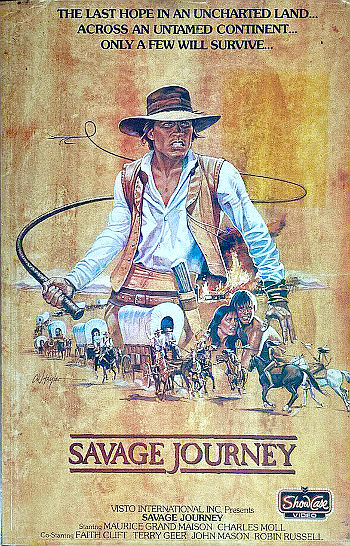 Maurice Grandmaison is Brigham Young and Charles Moll plays Joseph Smith in this film about the formation of the Mormon church.
Maurice Grandmaison is Brigham Young and Charles Moll plays Joseph Smith in this film about the formation of the Mormon church.
In the opening scene, a mob descends on Smith’s cabin, determined to string him up for his religious beliefs.
But one member of the mob notes that so many people are on hand, keeping the lynching secret might be difficult.
So the mob decides to tar and feather Smith instead.
It’s the type of persecution he and his followers will experience repeatedly as they search for a place to practice their religion in peace.
They move to Missouri, where church members are massacred by the state militia.
They move to Illinois, where Smith is arrested for smashing the printing press, then killed by a mob while awaiting trial.
It’s at that point that Brigham Young steps into the role of church leader, guiding the Mormons westward until they settle in Great Salt Lake Basin in the 1840s.
And it’s there that the church will flourish, despite attacks by locusts, Indians and continued disagreements with the federal government.
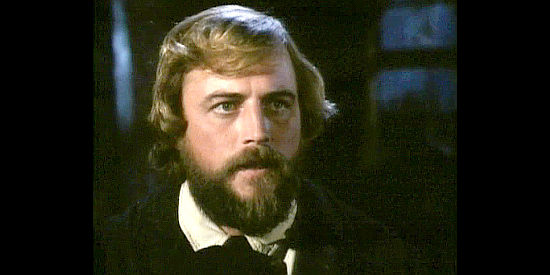
Maurice Grandmaison as Brigham Young, who’s takes leadership of the Mormon church after Joseph Smith dies in Savage Journey (1983)
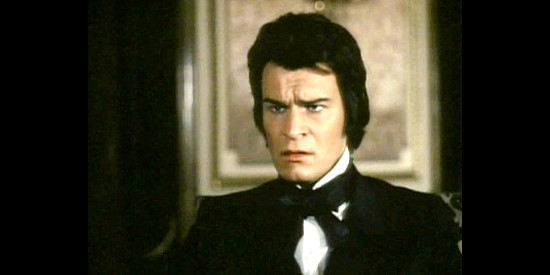
Charles Moll as Joseph Smith, pressing the president for action on behalf of the Mormons in Savage Journey (1983)
If you’re looking for a history of the Mormon church from the Mormon perspective, this film’s for you. It was produced by church member David Yeaman.
If you’re not, expect a crudely made, poorly acted movie that was released twice before, as “Brigham” in 1977, at “The New Brigham” and finally as “Savage Journey.”
The films succeeds best when depicting that savagery. The tarring and feathering of Joseph Smith in the opening scene — and the crazed look on the face of the man doing the tarring — will certainly grab the viewers’ attention.
Then there’s the massacre of women and children, cowering in a barn, during the church’s stop in Missouri. And prison guards firing into the air rather than being overrun by the mob of hundreds intent on killing Joseph Smith when he’s jailed in Illinois.
More odd is a scene in which Joseph Smith is explaining the advantages of polygamy to a politician. While he’s doing the explaining, he’s shown dancing in a circle. Each time his back is to the camera, the face of his dancing partner changes. After all, he had 15 wives at the time.
Faith Clift plays Claire Rudley, an early convert to the church who follows it westward even when it means leaving her husband behind. Terrance Gehr plays the husband, who is much slower to embrace the Mormon faith, but eventually does.
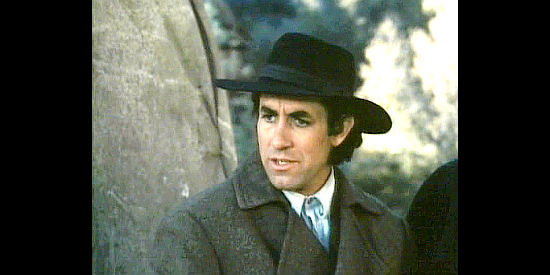
Terrance Gehr as Samuel Rudley, following the church on his wife’s behalf only to find it’s moving again in Savage Journey (1983)
Directed by:
Tom McGowan
Cast:
Maurice Grandmaison … Brigham Young
Charles Moll … Joseph Smith
Faith Clift … Claire Rudley
Terrance Gehr … Samuel Rudley
Robin Russell … Maryann Angel
John Mason … Heber
Francis Urry … President Van Buren
Dan Adams … Governor Ford
Marvin Miller … Senator
Marc Lawrence .. Chief Walker
Runtime: 96 min.
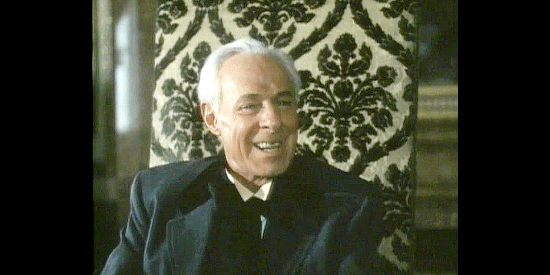
Francis Urry as President Van Buren, admitting he can do little for the Mormons during an election year in Savage Journey (1983)
Memorable lines:
Joseph Smith, tied to a post and tarred and feathered: “Why help me?”
Reverend’s wife: “I don’t know if you’re the prophet of God. But I’ve seen the devil’s work tonight.”
Samuel Rudley to Joseph Smith, after the latter has baptized Samuel’s wife Claire: “You’ve made my wife happy.”
Joseph Smith: “I hope so.”
Rudley: “For that I thank you. But I’ll warn you: Should this new religion ever make her suffer, I’ll find you and I’ll make you pay.”
Joseph Smith to President Van Buren after some of his followers have been massacred by the Missouri State Militia under orders from the governor: “Mr. President, if the head of any state is permitted to persecute a segment of his population because they practice a religion not approved by the majority, then where is our freedom of worship, guaranteed by the Constitution.”
Joseph Smith, defending his decision to destroy the press at a opposing newspaper: “I had the choice of smashing William Law’s head or his printing press. I choose the lesser of two evils.”
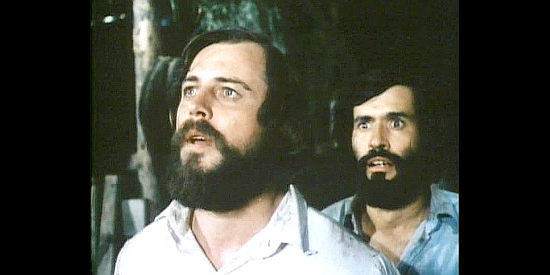
Maurice Grandmaison as Brigham Young and John Mason as Heber watch a plague of locusts descend on the Mormons’ fields in Savage Journey (1983)

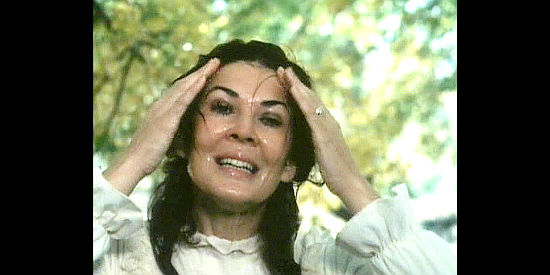
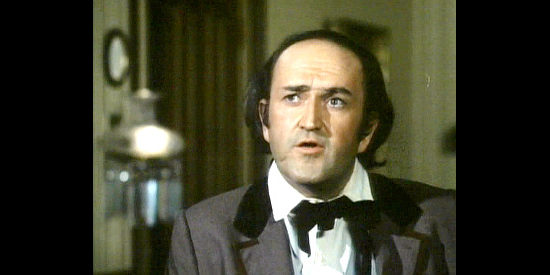
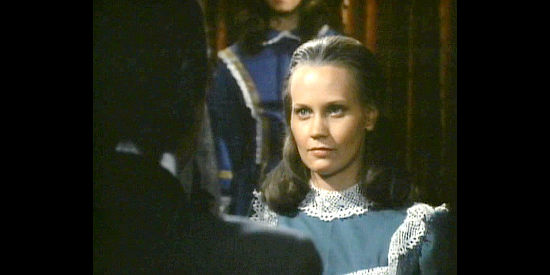
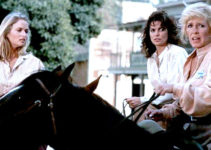
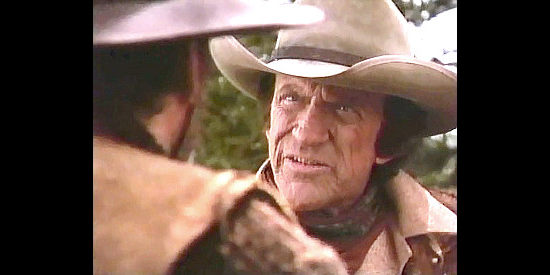
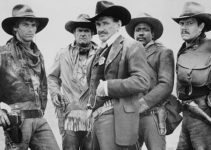
My dude, I love your site and read it every day, but I would like to respectfully point out that you make a fair few typos: “grad the viewers’ attention” and “BY steps into the role of church leaders”.